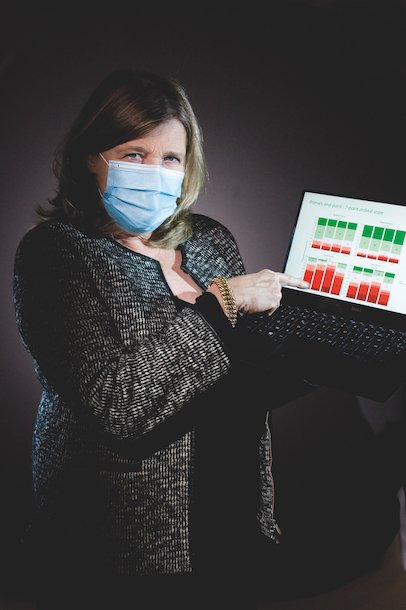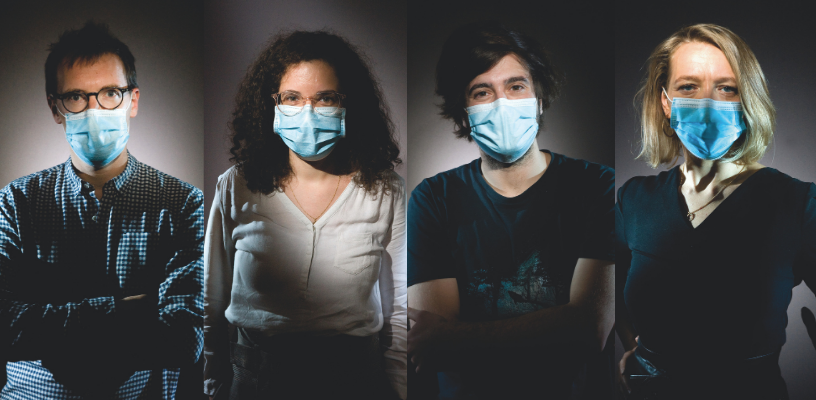France Mentré, 2020 Research Prize
A key medical research discipline, biostatistics ensures the rigor of studies conducted in patients. Not surprising then that biostatistician France Mentré and her colleagues have been extensively involved in COVID-19 clinical research at Inserm. It is in honor of their work that Inserm has awarded them its Research Prize.

At the crossroads of mathematics, computer science and biology, biostatistics plays a decisive role in the design, performance and analysis of clinical trials and epidemiological studies. « Biostatisticians are responsible for designing research protocols and for defining, sorting and analyzing the many types of data to be collected, explains France Mentré. When evaluating treatments, their ultimate objective is to determine whether the results obtained are ‘statistically significant’ or whether the differences observed are to be put down to chance. »
Having « always been very good at math », this longtime horse-riding enthusiast went into biostatistics because of her « strong affinity for the life sciences and health ». But in the beginning, it was not at all evident that she would go into medical research: « In my family we’re all either engineers or in economics or finance », she smiles.
With Inserm from the start
Mentré took her first steps in biostatistics at Inserm, « an institute where [my] discipline is well represented ». This was in the early 1980s: she was still a student, studying biomathematics at postgraduate followed by PhD level, working in unit 194 Computer Science and Statistical Methods in Medicine in Paris. A laboratory in which she was made staff scientist in 1985. Then, ten years later in 1995, she was made research director in unit 436 Mathematical Modeling and Statistics in Biology and Medicine, also in the French capital.
In fact, she observes, « I’ve virtually only ever worked for or with Inserm! » Even after leaving the Institute in 2000 for a teacher-researcher role at Université de Paris, it was not long before she went back. In 2003, she took the helm of unit 738 Models and Methods for Therapeutic Evaluation of Chronic Diseases, under the joint supervision of Inserm and Université de Paris. Finally in 2014, she co-founded her current laboratory with biochemist Erick Denamur: unit 1137* Infection, Antimicrobials, Modeling, Evolution, also under joint Inserm supervision.
Biostatistics, essential more than ever
Since the COVID-19 health crisis began, this highly multidisciplinary laboratory, which includes not just « statisticians, but also microbiologists, virologists, mathematicians, bioinformaticians and clinicians in infectious diseases, intensive care and pediatrics », has played an active role, particularly in implementing and monitoring two major Inserm projects: Discovery, which is aimed at finding effective COVID treatments and for which Mentré is in charge of the methodology, and the French Covid cohort, which is aimed at studying severe forms of the disease and for which she has shared responsibility for the methodology.
« In this period where we need to act quickly to find solutions for treating SARS-CoV‑2 patients, thereby increasing the risk of error, ensuring the validity of the results is more crucial than ever. Everyone’s health depends on it », insists Mentré who, in September 2020, became the first French woman to join the special COVID-19 scientific committee of the international research network Isaric. A major factor, at a time when rigor in research is more crucial than ever.

Aline Dechanet© Inserm / François Guénet
Note :
*Unit 1137 Inserm/Université de Paris/Université Sorbonne Paris Nord, Paris
